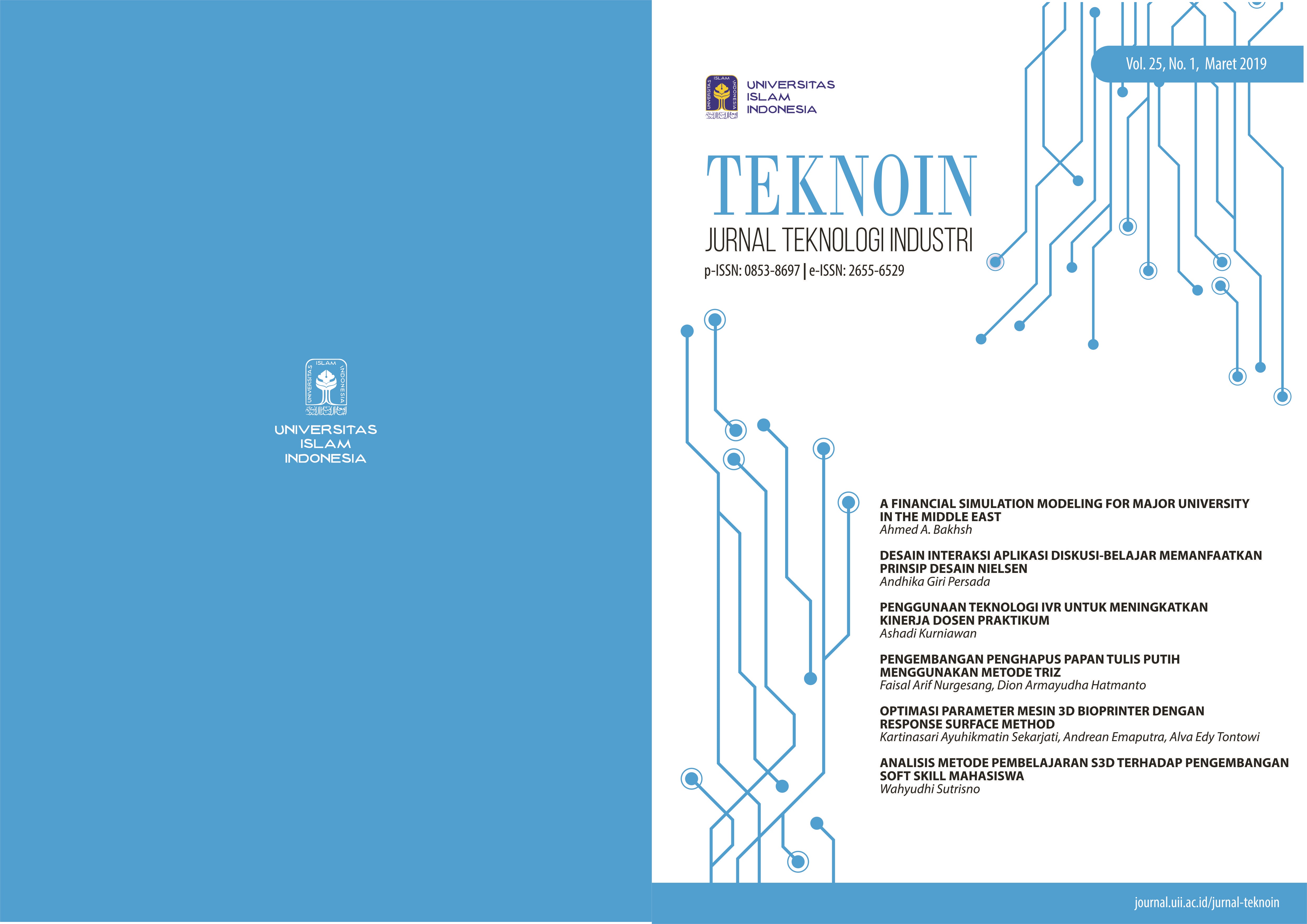Main Article Content
Abstract
E-Learning has been used as one of media that is used in the online-based learning process. Regarding to the fact about social media utilization by students, ideas are generated by adopting interactions from social media. Social media had proven able to attract various users, such as students. Utilization of mobile-based device, improve student's interest to use social media. Based on those facts, this study aims to design the interaction which is adopted from social media, named Diskusi-Belajar. There are two fundamental behind the reasons choosing social media as subject. First, social media had been proven able to attract users to communicate each other interactively. Second, social media has intuitive flow of interaction and interface which making it easier to be used. In this study, elements of the social media were converted into interaction design of Diskusi-Belajar. Interaction design is produced on mobile-based platform. In order to ensure usability quality, ten principles of the Nielsen's design are used as a guideline. Five evaluators are involved to measure interaction design and generated three times iterations. Conclusions of the study is, although not all Nielsen's design principles are accommodated, the elements which are generated from previous studies have succesfully implemented in Diskusi-Belajar and produce good usability.
Keywords
antarmuka
diskusi-belajar
usabilitas
prinsip desain nielsen
Article Details
License
Authors who publish with this journal agree to the following terms:
- Authors retain copyright and grant the journal right of first publication with the work simultaneously licensed under a Creative Commons Attribution License that allows others to share the work with an acknowledgement of the work's authorship and initial publication in this journal.
- Authors are able to enter into separate, additional contractual arrangements for the non-exclusive distribution of the journal's published version of the work (e.g., post it to an institutional repository or publish it in a book), with an acknowledgement of its initial publication in this journal.
- Authors are permitted and encouraged to post their work online (e.g., in institutional repositories or on their website) prior to and during the submission process, as it can lead to productive exchanges, as well as earlier and greater citation of published work (See The Effect of Open Access).
